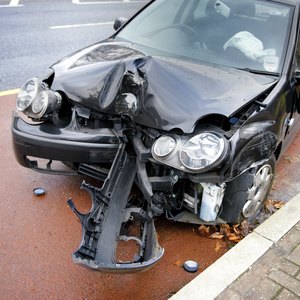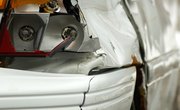
There comes a time in the life of every vehicle when it is no longer useful. Either it has traveled its last mile, absorbed a devastating impact, suffered the violence of vandals or endured saturation from flooding. Also, an insurance adjustor may consider its cost of repairs to be prohibitive and more than the current value of the vehicle. Whatever the circumstance, the conveyance is no longer drivable.
At the same time, though, despite being considered a total loss vehicle, it may still retain some unseen value, which becomes the salvage value of your car. Parts left intact, for example, are in demand by multiple sources.
Some might see a car to be junked, while others can appreciate the salvage value of a car. Before shopping the salvage car around to junk dealers, owners would do well to apply a salvage value formula for optimal profit.
What Is Salvage Value?
According to the IRS, the salvage value of a salvage vehicle is the estimated value of the property after the end of its useful life. While a working vehicle might have a market value that is more than just the sum of its parts, a junk car or truck is evaluated solely on parts.
In brief, salvage value is the appraised worth of a commodity or manufactured object that has reached its lowest point of depreciation. It is a concept that affects not only vehicles but also buildings, machines and crops. Any items that are no longer marketable as those items have salvage values.
So, a car salvage value applies when the car becomes permanently inoperable and is declared a total loss. The salvage value reflects the amount a seller can expect to receive for a ruined auto.
Is the Car Irreparable?
In the strictest sense, almost any damaged vehicle is fixable with sufficient time, materials and labor. However, doing so might be more expensive than replacing the car altogether.
It is when the vehicle crosses that all-important threshold that salvage value, also known as scrap value, kicks in. In other words, when purchasing a new automobile becomes the cheaper option, the old car's worth passes from the whole to its parts. How, then, does an owner calculate the value of a salvage title car?
Calculating the Car Scrap Value
There is no universal formula for the salvage value of a salvage car or truck. Auto insurance companies use their own methods for totaled cars, which they see as tried and true. However, there is a way for a vehicle owner to come fairly close to an accurate scrap value.
Begin with the Kelly Blue Book (KBB). For nearly a century, the KBB has offered used and new car values according to make, model and year. Also, it factors in trade-in and private party sale values. In doing so, it earned a celebrated reputation for accuracy and reliability.
Since all stable calculations should rest on dependable numbers, the KBB is the best place to start when determining the value of your vehicle. For example, a 2021 Toyota Rav4 Hybrid has a starting price of $29,675 according to the KBB.
Having found the retail price in the KBB, immediately go to the National Automobile Dealers Association (NADA) list of used car prices.
Representing independent auto retailers across the United States for over 100 years, NADA collaborates with J.D. Power to provide solid statistical data about mostly wholesale values of pre-owned motor vehicles available for resale. The average of the sum of the KBB and NADA values yields the car's current market value, without, of course, taking damage into account.
Individual insurance companies apply a depreciation factor after assessing a car's condition; this number can fall in the 70 to 80 percent range. Once applied to the current market value, the factor conveys the salvage value of the car.
Is the Salvage Value Formula Binding?
Junk dealers pay what junk dealers will pay. They are not bound by insurance company appraisals or any other regime for calculating salvage value. As with most businesses, supply and demand of salvage title vehicles govern their decision-making.
Many cities will have multiple junk yards or salvage yards on the same street or at least in the same neighborhood. Therefore, it's certainly worth it to shop around a little and ask different places, "What's the salvage value of my car?" That way, you'll ensure that you get the highest price.
References
Writer Bio
Adam Luehrs is a writer during the day and a voracious reader at night. He focuses mostly on finance writing and has a passion for real estate, credit card deals, and investing.

